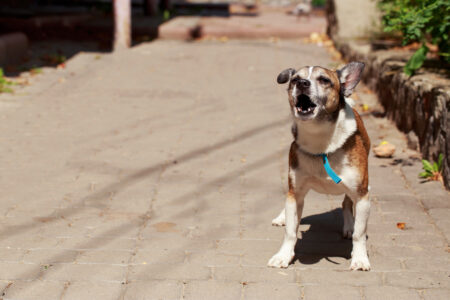
A new report shows the number of dog attacks as well as aggressive and roaming canines is on the rise across the city.
Auckland Council’s 2022-2023 Animal Management Annual Report was presented to councillors at a recent meeting of the regulatory and safety committee.
The known dog population in the city has increased this year by 5.4 per cent to 131,795 dogs, continuing an upward trend seen in previous years.
The number of reports the council has received about dogs acting aggressively toward people or other animals is up 59 per cent from the previous year.
Manager of Animal Management Elly Waitoa says a 28 per cent increase in reported dog attacks is “particularly concerning”.
“There were 250 more attacks on people and 280 more attacks on other animals reported in the past year.
“However, we know by looking at data from ACC that only about 20 per cent of dog bites are reported to the council.
“These numbers are really worrying, especially when you consider dogs that have attacked once are more likely to attack again unless sufficient interventions are put in place.”
Reports of dog attacks, roaming dogs and aggression in Auckland have been increasing steadily since 2020, with the effects of Covid-19 believed to be a contributing factor.
“Lots of people were getting puppies while they were at home during lockdown, but because de-sexing was not an essential service, vets weren’t able to perform de-sexing and dogs weren’t able to be adequately socialised,” Waitoa says.
“Now, these puppies are larger dogs and their owners have gone back to work, meaning there are more dogs in homes and out on the streets behaving undesirably.”
Councillor and regulatory and safety committee chairperson Josephine Bartley says it’s the responsibility of dog owners to keep their pets off the streets and out of the council’s shelters.
“Dog numbers are out of control in Tamaki Makaurau (Auckland) and our shelters can’t keep up with the demand.
“We need people to be more responsible, starting with thinking carefully before getting a dog and whether they can give it a home for life.”








